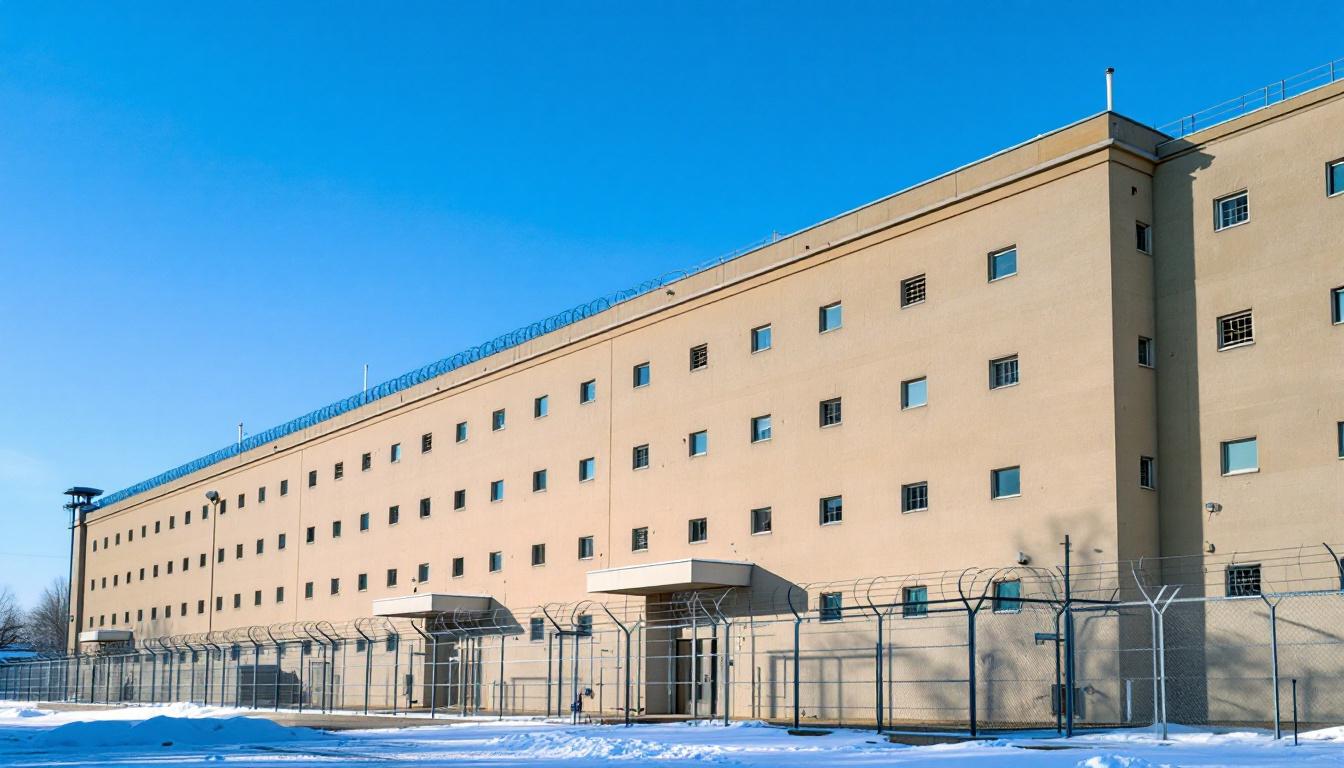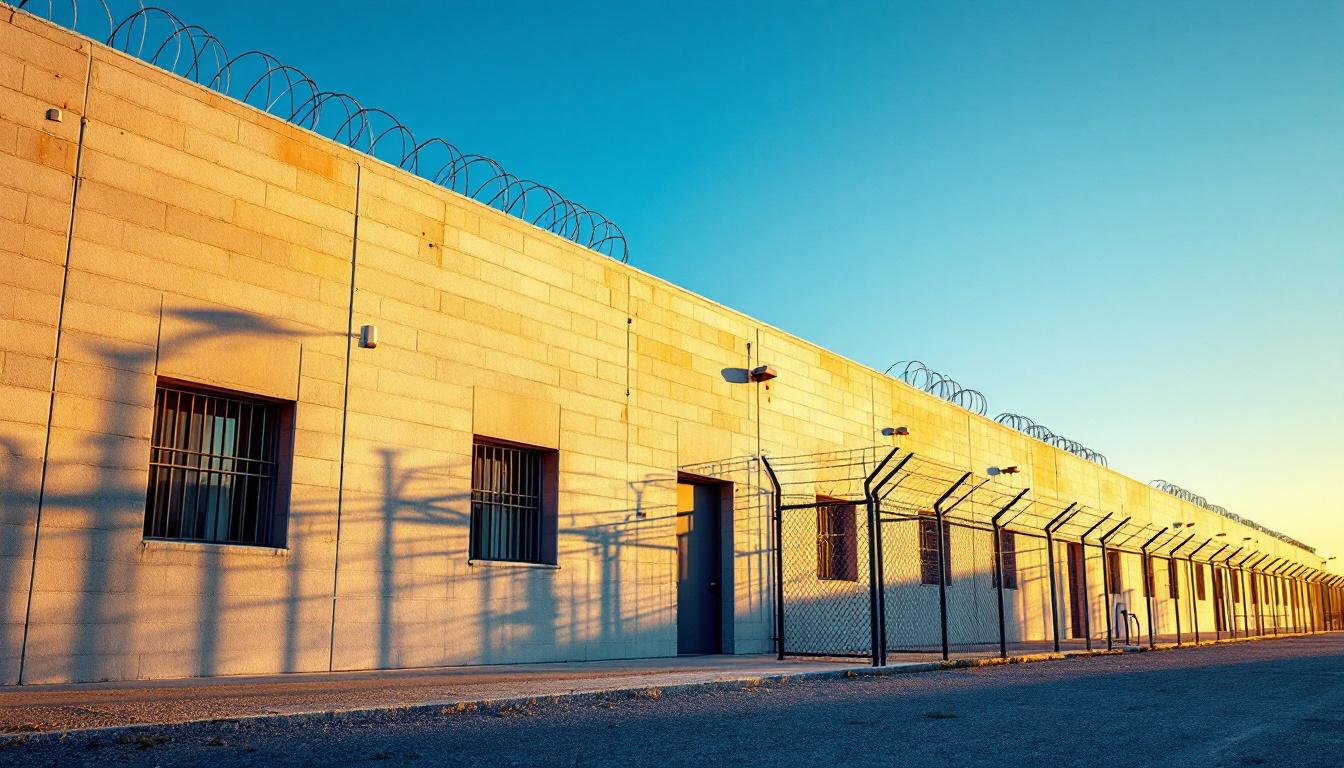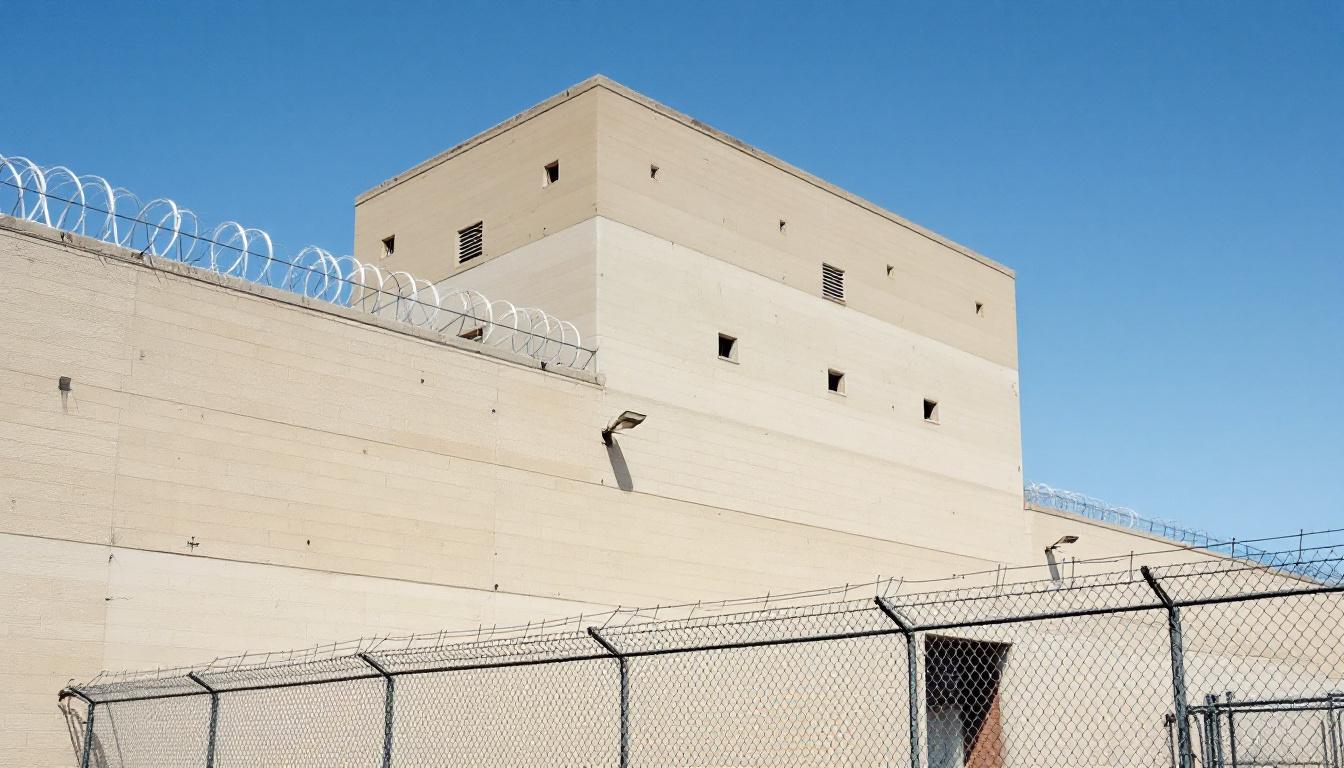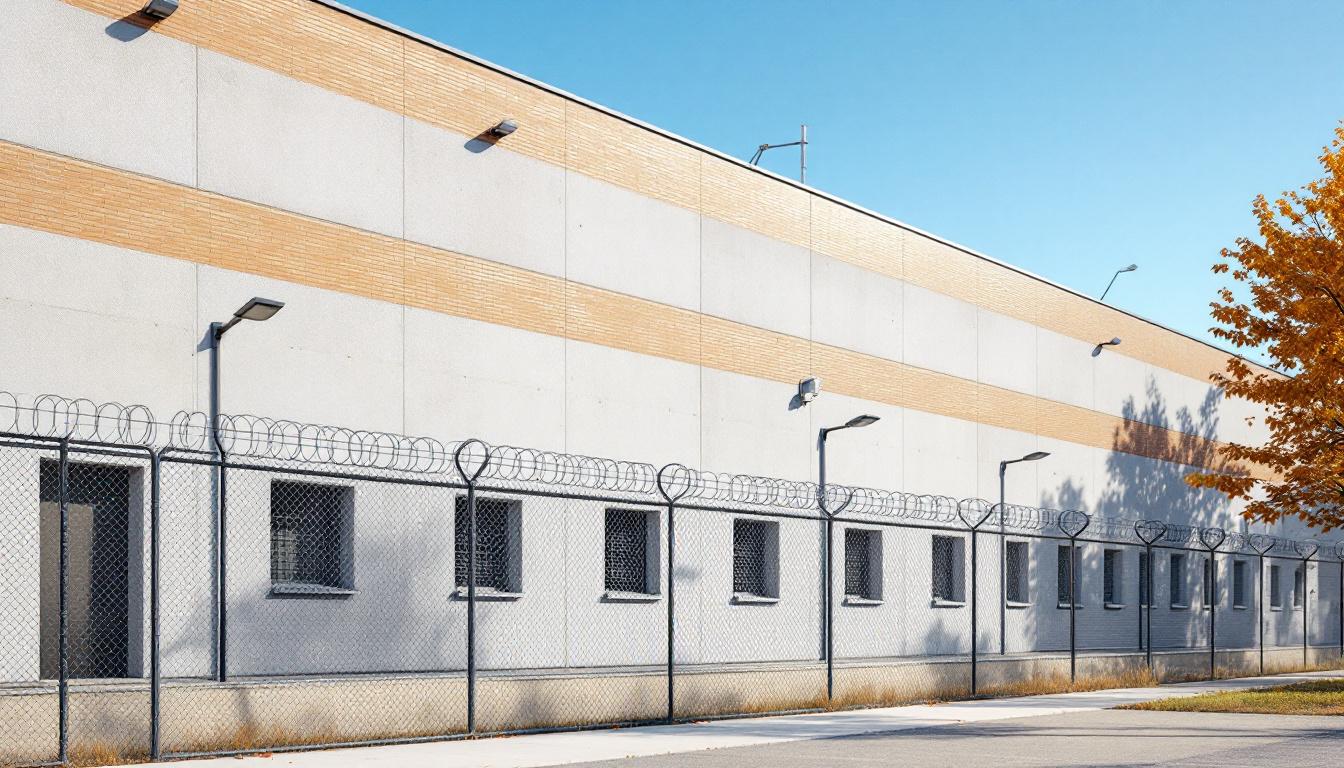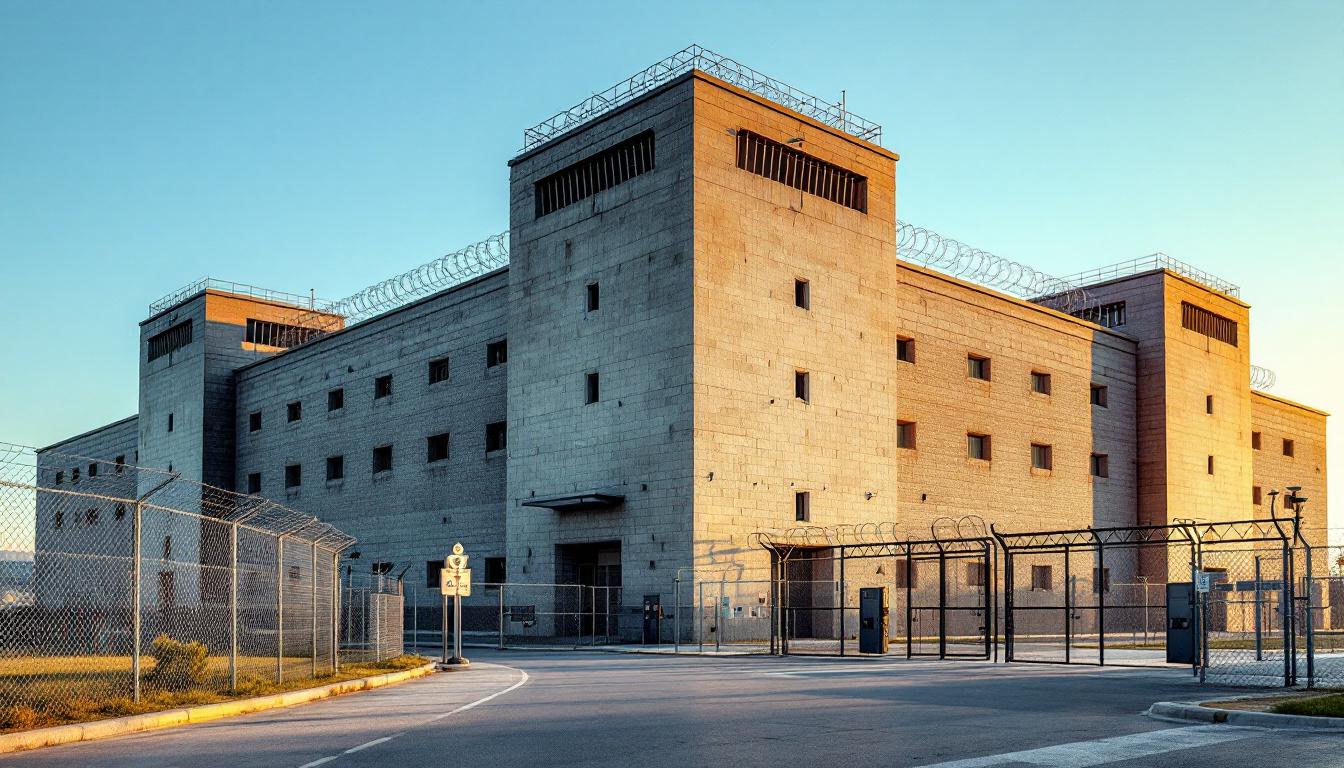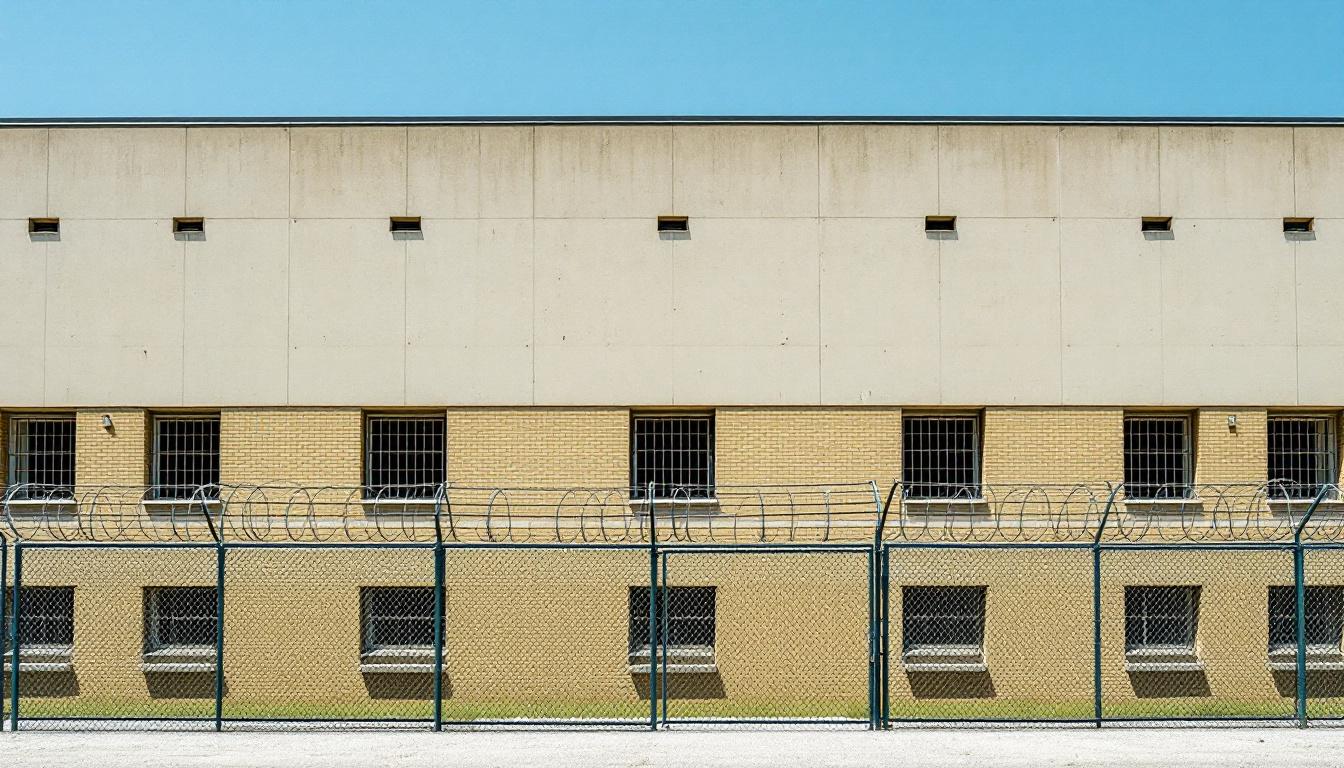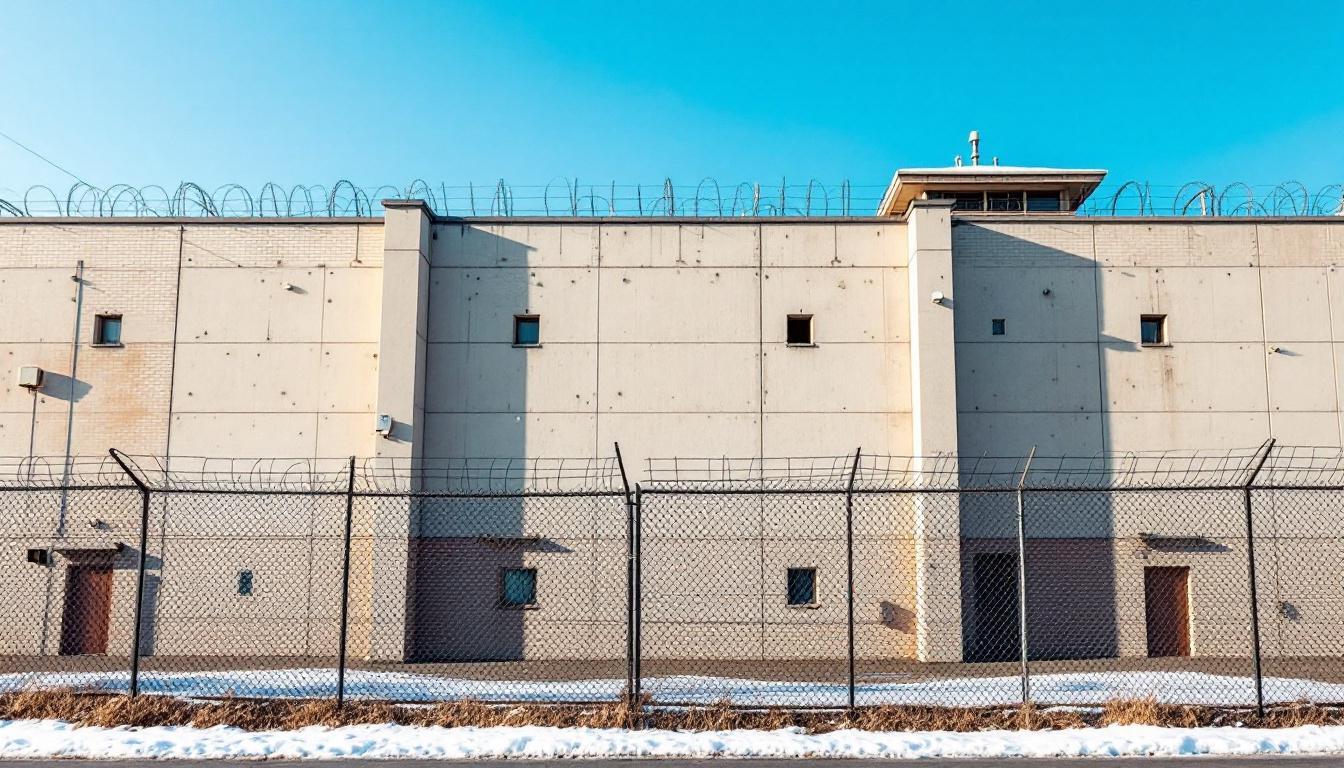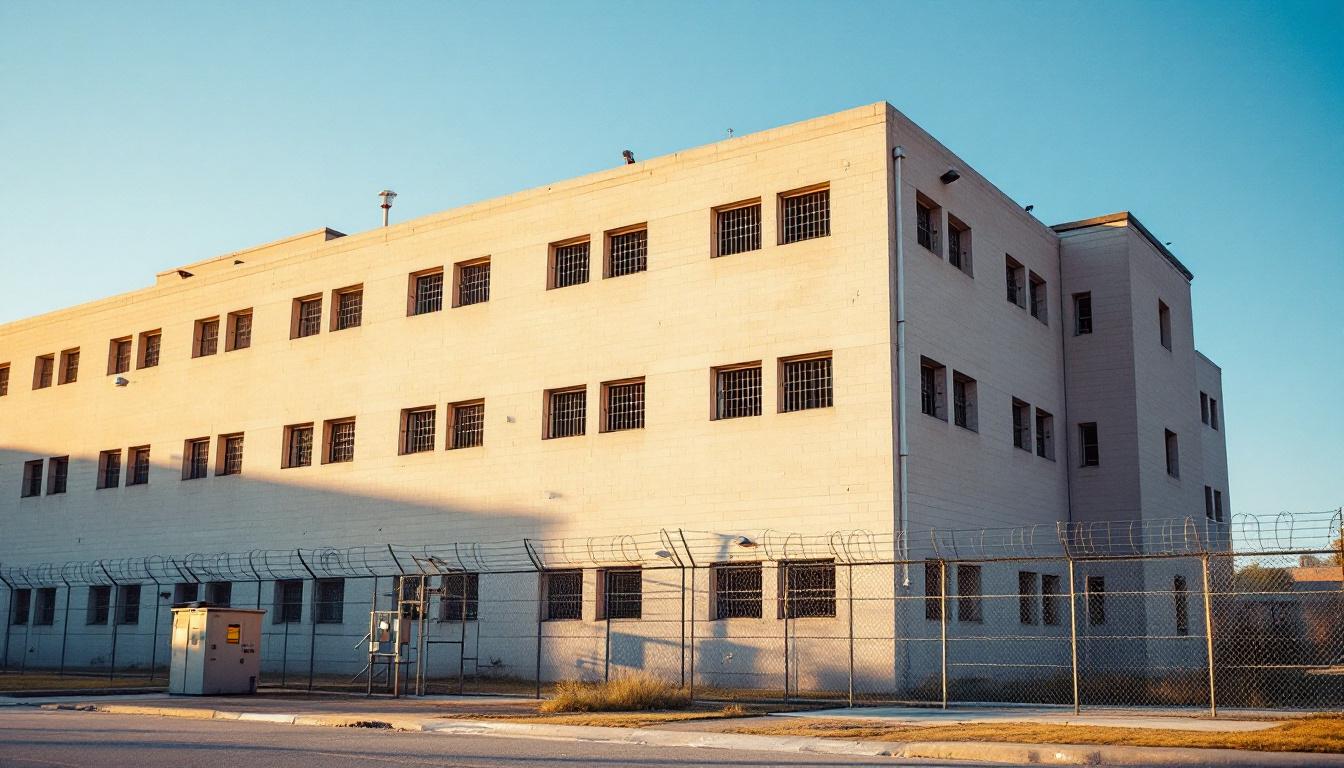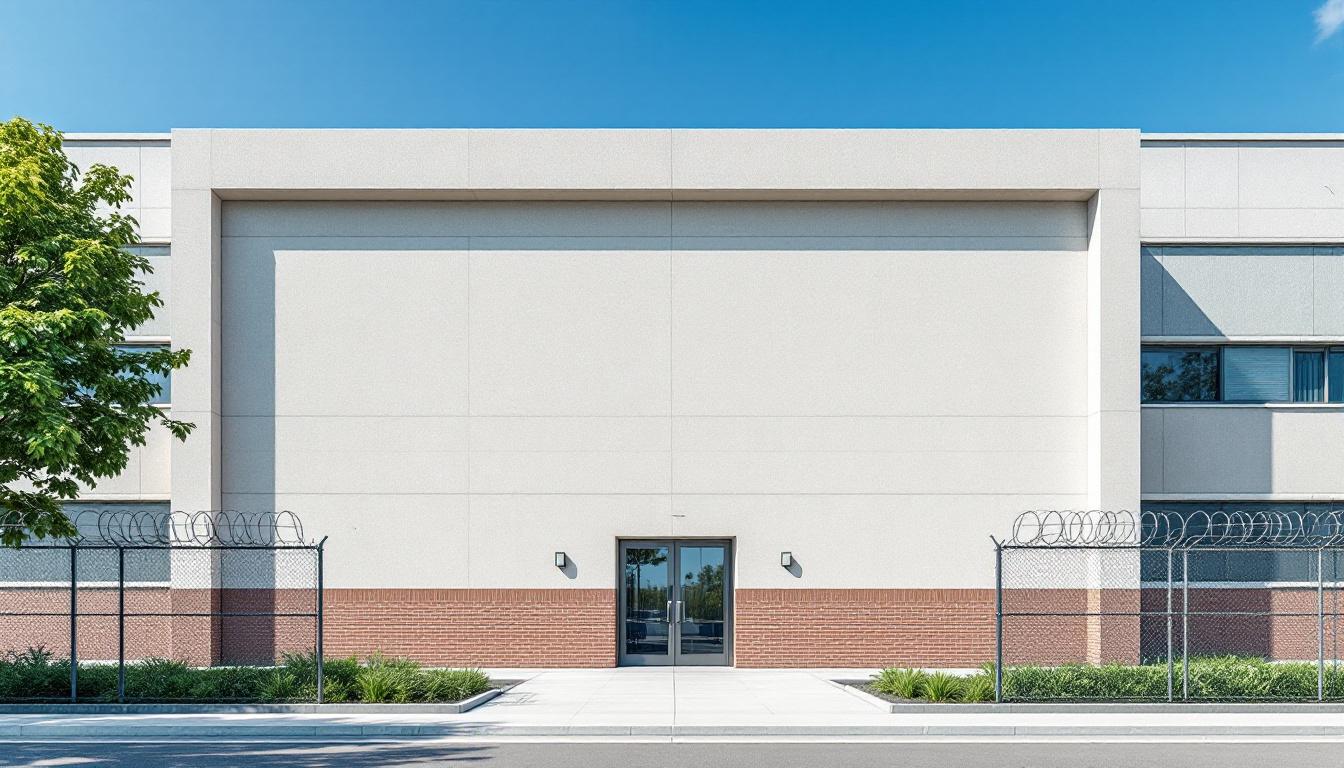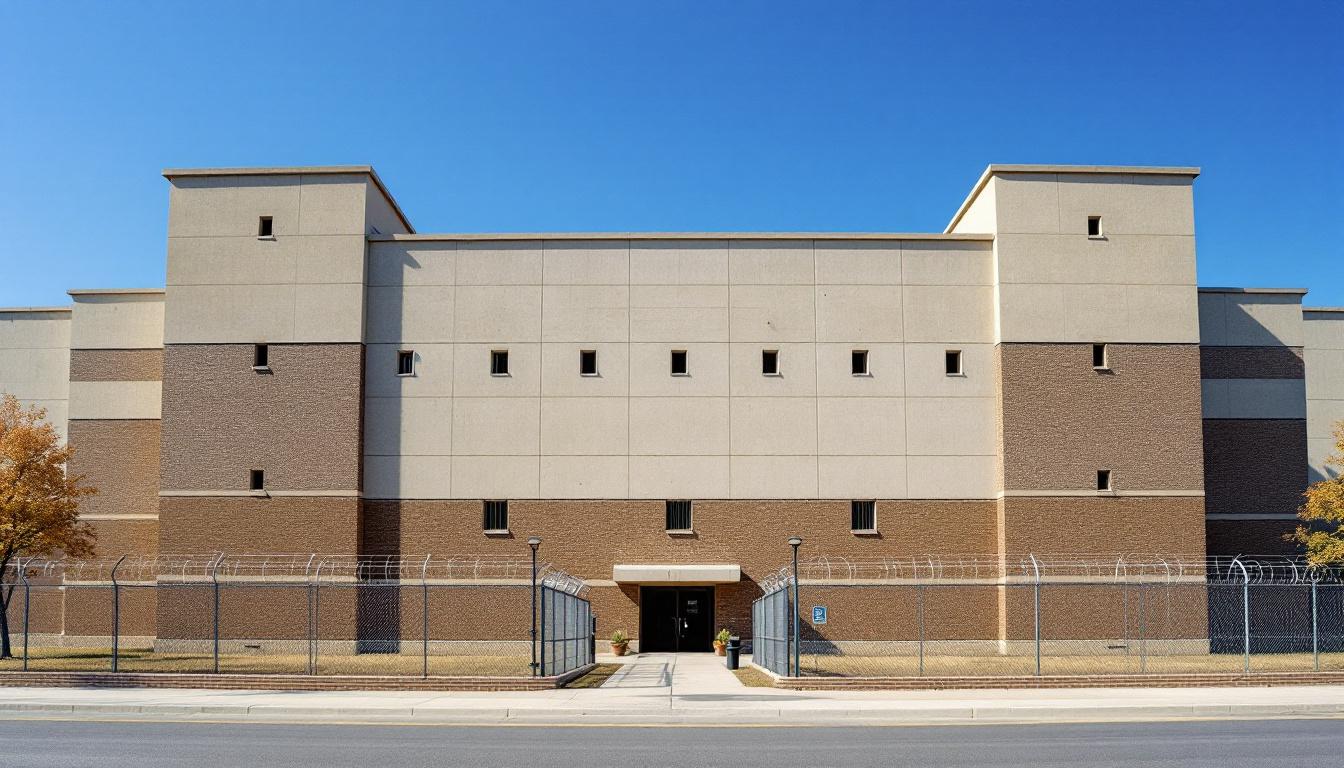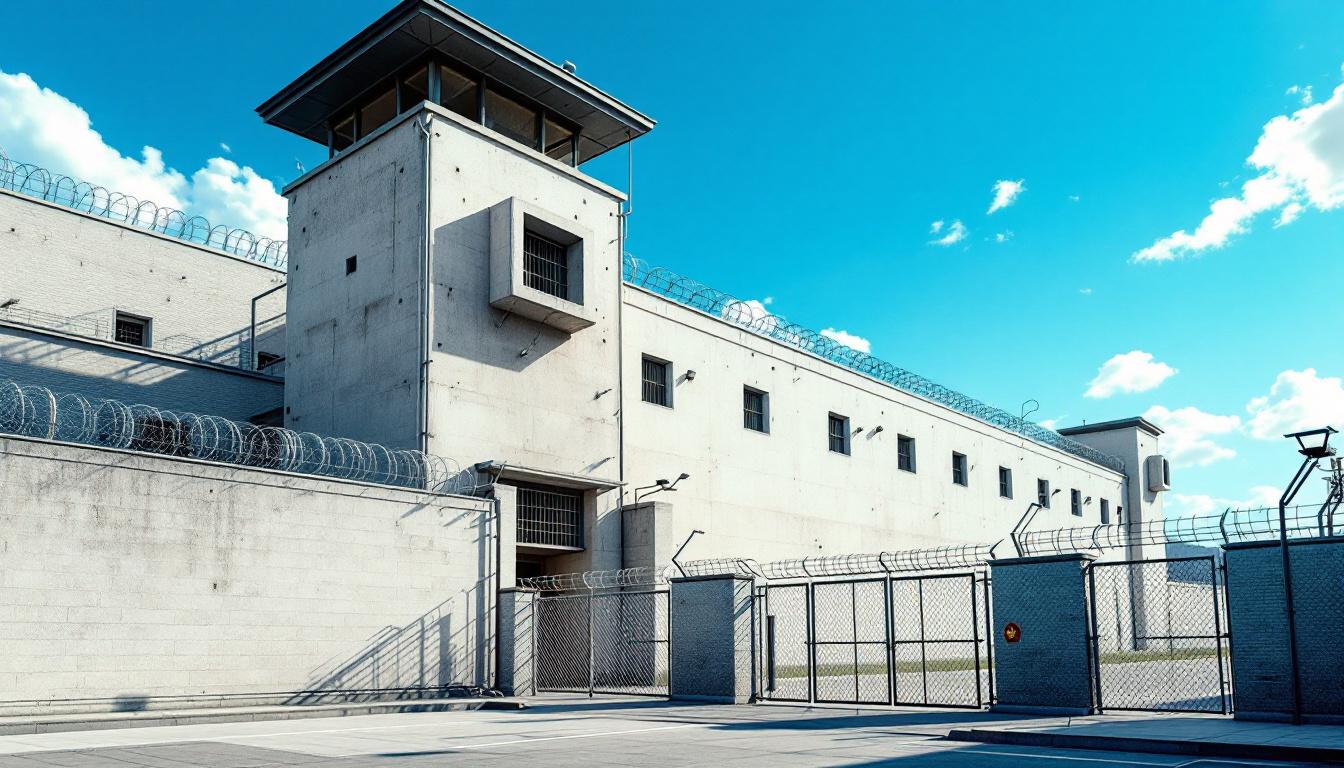
Quick Navigation
How to contact an inmate at Clayton County Prison
This comprehensive guide will walk you through how to connect with an inmate at Clayton County Prison. Follow the steps below to find an inmate and send letters and photos:
- Search for the inmate using our search tool below
- Create your account or log in to Penmate
- Write your message (up to 6,000 characters)
- Send instantly - inmates receive printed copies daily
Find an Inmate
Search for an inmate to start communicating today
Tip: You can search by first name, last name, or inmate ID number
To contact a person at Clayton County Prison start by searching for the person on the official facility website. Perform a search by following these steps:
- Step 1: Enter their first name and last name into the search form and click "Search"
- Step 2: Locate their inmate record
- Step 3: Write down their Inmate ID and any housing information provided
Important! Be sure to enter the person's full name. Nicknames should not be used.
How to Send Messages to Inmates

You can use your phone or computer to send emails, letters, and photos to an inmate. Messages are sent electronically to inmate tablets or kiosks at the facility. If you would like to send a message, start by searching for an inmate at Clayton County Prison.
Sending Photos and Postcards

A great way to send love and support to a loved one at Clayton County Prison is to send photos and postcards. It only takes a few minutes to send photos from your phone and it makes a huge difference. You can also mail postcards with words of support and inspiration, or design your own postcard for special moments like birthdays and holidays.
Important! Be sure not to send any explicit photos or they may not be approved by the facility. You can also use a photo printing app like Penmate to make sure your photos are printed at the correct size (4x6 or 3x5) and are mailed according to the rules and regulations of Clayton County Prison.
Frequently asked questions about Clayton County Prison
-
How long does it take to deliver a message?
If you're sending an email message your letter is usually delivered within 24-48 hours. For messages sent via mail you should expect delivery within 3-7 days. All messages will need be approved by Clayton County Prison.
-
How much does it cost to send a message to Clayton County Prison?
You can send a message free using your phone or mail a message via USPS for the price of a $0.60 stamp and envelope. You can also purchase credits or e-stamps from services starting at $1.99.
-
What services can I use to contact an inmate at Clayton County Prison?
Penmate
You can use Penmate to send letters and photos to an inmate from your phone. It's an easy way to stay in touch during your loved one's incarceration. Use the inmate locator to find an inmate's location and contact information, then you can send messages within a few minutes.
Securus messaging
Securus may be another option for communicating with an inmate at Clayton County Prison. You can create a friends and family account and purchase credits to send messages. All messages will be reviewed and must be approved by the facility.
JPay
Some county jails and state prisons may support sending messages with JPay. You must register an account with the system, find your loved one, and purchase stamps to send messages. For some locations you can also attach photos.
Smart Jail Mail
You may also check if Smart Jail Mail is available at Clayton County Prison. Smart Jail Mail is operated by Smart Communications and has contracted with some state and county jails. After purchasing credits, your messages and photos are sent to the facility, printed out, and then handed out to your loved one.
-
What is the mailing address of Clayton County Prison?
Mailing address:
Clayton County Prison
11420 S.L.R. Blvd
Lovejoy, GA 30250
Phone: (770) 473-5777Business hours:
- Monday: Closed
- Tuesday: Closed
- Wednesday: Closed
- Thursday: Closed
- Friday: Closed
- Saturday: 9:00 AM – 1:00 PM
- Sunday: 9:00 AM – 1:00 PM
-
What are the visiting hours at Clayton County Prison?
Visiting hours at Clayton County Prison vary by housing unit and security level. Generally, visits are scheduled on weekends and holidays, with some facilities offering weekday visits. Contact the facility directly at (770) 473-5777 or check their website for the current visiting schedule. Visits typically last 30-60 minutes and must be scheduled in advance.
-
What items are prohibited when sending mail to Clayton County Prison?
Prohibited items typically include: cash, personal checks, stamps, stickers, glitter, glue, tape, staples, paperclips, polaroid photos, musical or blank greeting cards, hardcover books, magazines with staples, and any items containing metal or electronics. Only send letters on plain white paper with blue or black ink. Photos must be printed on regular photo paper (no Polaroids). Always check with Clayton County Prison for their specific mail policies.
-
How do I send money to an inmate at Clayton County Prison?
You can send money to an inmate at Clayton County Prison through several methods: 1) Online using JPay, Access Corrections, or the facility's approved vendor, 2) Money orders mailed directly to the facility with the inmate's name and ID number, 3) Kiosks located in the facility lobby, or 4) Over the phone using a credit or debit card. Fees vary by method, typically ranging from $2.95 to $11.95 per transaction.
-
Can I schedule a video visit with an inmate at Clayton County Prison?
Many facilities now offer video visitation as an alternative to in-person visits. At Clayton County Prison, video visits may be available through services like Penmate, Securus Video Connect, GTL, or ICSolutions. Video visits typically cost $10-20 for 20-30 minutes and must be scheduled in advance. You'll need a computer or smartphone with a camera and reliable internet connection. Contact the facility for their specific video visitation policies and approved vendors.
-
What identification do I need to visit an inmate at Clayton County Prison?
All visitors must present valid government-issued photo identification such as a driver's license, state ID, passport, or military ID. Minors must be accompanied by a parent or legal guardian who can provide the minor's birth certificate. Some facilities require visitors to be on the inmate's approved visitation list, which may require a background check. Contact Clayton County Prison for specific ID requirements and visitor approval procedures.
-
How can I find out an inmate's release date?
To find an inmate's release date at Clayton County Prison, you can: 1) Use the online inmate search tool if available, 2) Call the facility's records department, 3) Contact the inmate's case manager or counselor, or 4) Have the inmate provide this information during a call or visit. For privacy reasons, some facilities only release this information to immediate family members.
Facility Overview
Official Website
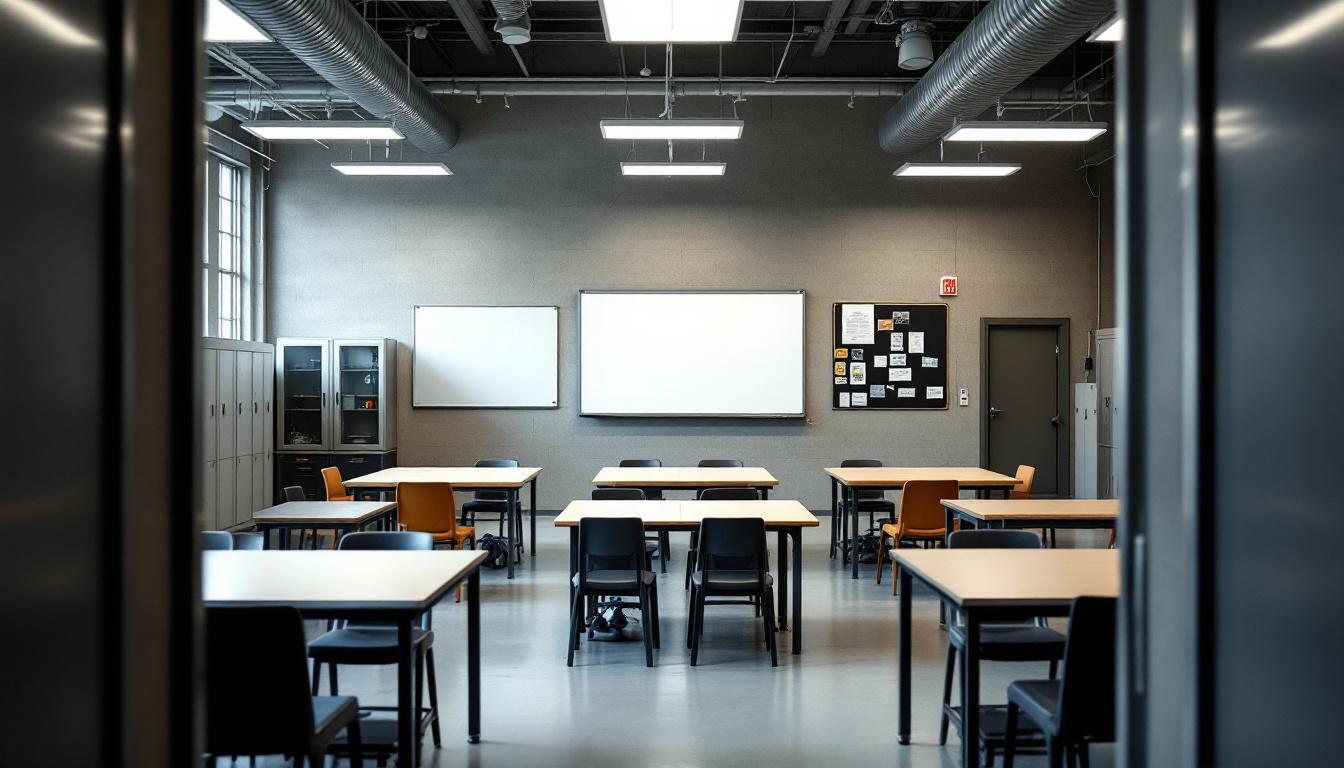
About Clayton County Prison
Community safety and rehabilitation intersect meaningfully in Alma, GA, where Bacon Probation Detention serves as a cornerstone of the region's correctional infrastructure. This GA correctional facility operates within a framework that recognizes the evolving nature of detention services, building upon decades of correctional philosophy that emphasizes both accountability and positive outcomes. The facility's position within Georgia's broader detention network reflects the state's commitment to providing comprehensive inmate services while maintaining secure environments that protect public safety.
Programs at Bacon Probation Detention typically focus on addressing the underlying factors that contribute to criminal behavior, with rehabilitation efforts designed to support successful community reintegration. The detention center may offer educational opportunities, substance abuse counseling, and life skills development programs that help individuals develop the tools necessary for positive change. These initiatives often include vocational training components and mental health support services, recognizing that effective rehabilitation requires a multifaceted approach to addressing individual needs and circumstances.
The facility's role within the south region's correctional landscape demonstrates Georgia's strategic approach to managing detention populations while supporting community welfare. Bacon Probation Detention generally maintains connections with local social services, treatment providers, and community organizations to ensure continuity of care and support for individuals transitioning back into society. This collaborative framework helps strengthen the overall effectiveness of the correctional system while promoting public safety through evidence-based practices and community partnerships that extend beyond the facility's walls.
Programs & Services
Personal growth and skill development form the cornerstone of rehabilitation efforts, with inmates gaining access to structured opportunities that build both practical abilities and inner strength. The facility typically emphasizes a holistic approach to transformation, recognizing that meaningful change requires addressing multiple aspects of an individual's life. Through carefully designed services, participants may develop the tools necessary for successful reintegration into their communities while fostering personal accountability and self-improvement.
Educational services often include basic literacy programs, GED preparation, and continuing education opportunities that help inmates advance their academic credentials. These learning initiatives typically complement vocational training programs that may focus on marketable skills in various trades and industries. Moreover, specialized vocational training often provides hands-on experience in areas such as construction, maintenance, and other practical fields that offer viable employment pathways upon release.
Support services play a crucial role in addressing the spiritual and emotional needs of inmates, with faith-based services typically providing guidance, community connection, and moral development opportunities. The facility may also offer practical skill-building programs in areas like plumbing, painting and decorating, which serve dual purposes of facility maintenance and inmate skill development. These therapeutic services often work together to create a comprehensive support network that addresses both immediate needs and long-term rehabilitation goals, helping participants build confidence while developing valuable life skills.
Daily Life & Visitation
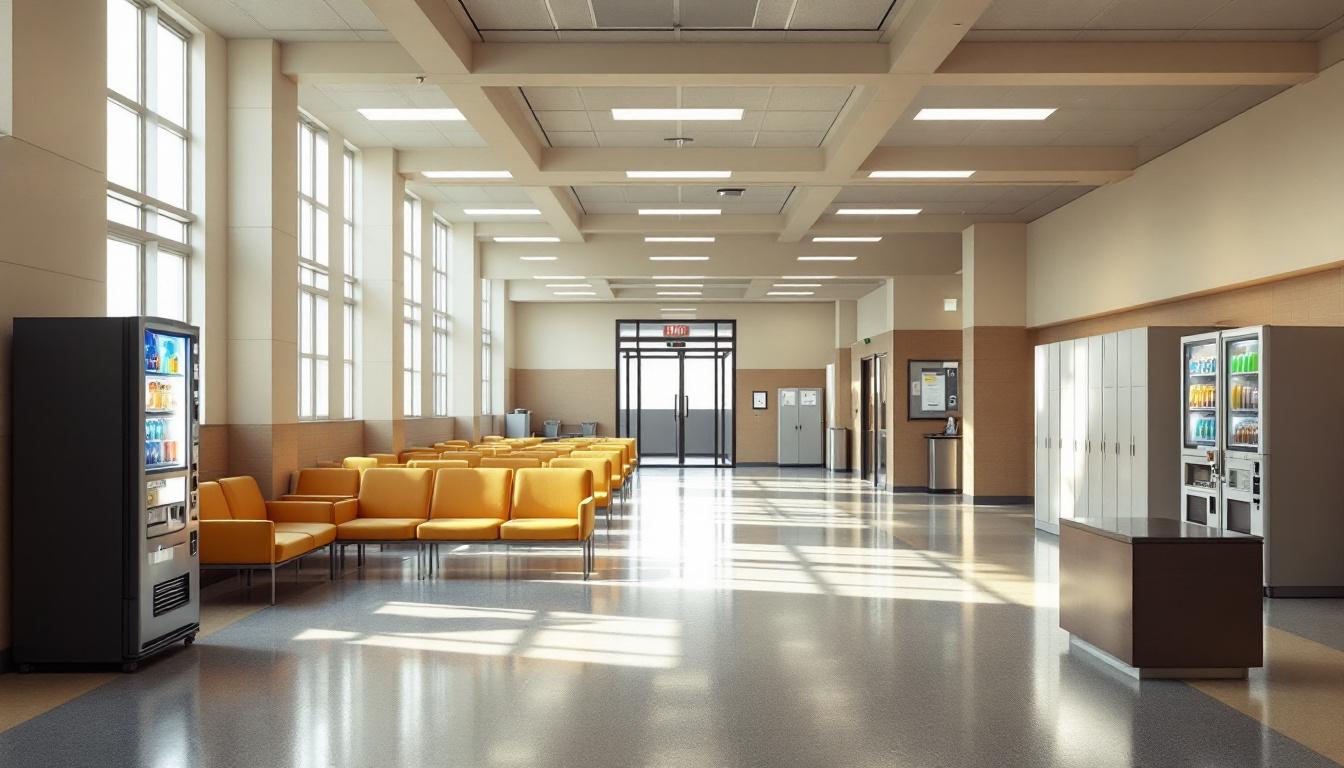
The structured environment of housing units at this Georgia facility shapes every aspect of an inmate's experience from morning wake-up calls to evening lockdown procedures. Daily routines currently revolve around scheduled counts, meal times, and programmed activities that continue to provide essential structure throughout each day. Inmates typically begin their mornings with facility counts before proceeding to dining areas for breakfast, followed by work assignments or educational programming that generally runs through the afternoon hours.
Living accommodations usually consist of shared cells or dormitory-style housing units where inmates adapt to limited personal space and communal living arrangements. The facility generally provides basic necessities including bedding, hygiene items, and uniforms, while inmates may purchase additional comfort items through the commissary system. Moreover, personal property is typically restricted to essential items that fit within designated storage areas, encouraging inmates to focus on rehabilitation programming rather than material possessions.
Recreation opportunities often include outdoor exercise periods, indoor recreational activities, and access to library services that provide both entertainment and educational resources. Whereas some facilities limit communication options, most detention centers typically offer scheduled telephone access and regular visitation periods that help inmates maintain important family connections. Work assignments within the facility may include kitchen duties, maintenance tasks, or administrative support roles that provide structure while teaching valuable skills for eventual reintegration into the community.
Ready to Connect?
Start communicating with your loved one today
Search for an Inmate
